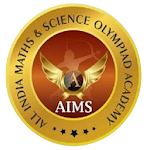Entertaining Science Riddles for Kids
Riddle 1: The Mysterious Watermelon
I'm a fruit with a secret! I consist mostly of water and have a green outer layer. When you bite into me, you discover my sweet, red flesh. What am I?
Hint: You'll often find me at picnics, and I'm a favorite summer treat.
Riddle 2: The Clever Chameleon
I'm a reptile known for my color-changing abilities. I can blend into my surroundings and catch insects with my long, sticky tongue. What am I?
Hint: You might find me in tropical rainforests.
Riddle 3: The Flying Machine
I'm a vehicle that can soar through the sky. I have wings and a cockpit, and I'm used for transportation and exploration of the skies. What am I?
Hint: I'm often featured in science fiction movies, and astronauts use me to explore outer space.
Riddle 4: The Solar Power Generator
I'm a device that harnesses the power of the sun to produce electricity. I consist of photovoltaic cells and help reduce our reliance on fossil fuels. What am I?
Hint: You might spot me on rooftops or in large solar farms.
The Fascinating World of Science Riddles for Children
In the realm of education, science plays a pivotal role in sparking curiosity and nurturing young minds. Engaging children in science-related activities not only enhances their cognitive abilities but also instills a sense of wonder and inquisitiveness about the natural world. One intriguing and enjoyable way to achieve this is through science riddles. These thought-provoking puzzles are designed to challenge young intellects, encouraging critical thinking and problem-solving skills. In this blog, we will delve into the captivating world of science riddles for kids, exploring their significance, benefits, and some entertaining examples.
The Significance of Science Riddles for Kids
Science riddles serve as an excellent educational tool for children, fostering their interest in various scientific disciplines. These puzzles are designed to be both fun and informative, making them an effective teaching aid. Let's explore the significance of science riddles for young minds.
1. Promoting Critical Thinking
Science riddles require children to think critically and analytically. They are encouraged to apply their knowledge of scientific concepts to solve complex problems. This process not only enhances their cognitive abilities but also nurtures their problem-solving skills.
2. Encouraging Curiosity
Riddles pique the curiosity of children. They present intriguing questions and challenges, motivating kids to seek answers and explore the world of science further. This inquisitiveness can lead to a lifelong love for learning.
3. Enhancing Vocabulary
Solving science riddles often involves understanding and using specific scientific terminology. This not only expands a child's vocabulary but also helps them grasp the significance of precise language in the world of science.
4. Promoting Collaboration
Riddles can be a collaborative activity, encouraging children to work together to find solutions. This promotes teamwork and communication skills, which are valuable life skills.
The Benefits of Introducing Science Riddles
Science riddles offer a multitude of benefits to young learners. By integrating these puzzles into their education, parents and educators can facilitate a more enriching learning experience for children.
1. Improved Problem-Solving Skills
Science riddles are designed to be challenging, requiring kids to approach problems from different angles. This cultivates their problem-solving abilities, which are essential in science and everyday life.
2. Increased Retention of Scientific Concepts
Solving riddles often involves applying scientific principles. As children tackle these puzzles, they reinforce their understanding of various scientific concepts, ensuring better retention of knowledge.
3. Enhanced Cognitive Development
Engaging with science riddles stimulates cognitive development. It sharpens a child's analytical thinking, logical reasoning, and memory skills, all of which are valuable assets in their academic journey.
4. Fun Learning Experience
Learning through riddles is enjoyable. It adds an element of fun to the educational process, making science more appealing to children and reducing the fear associated with complex scientific topics.
Conclusion
Science riddles for kids are an incredible tool for fostering curiosity and enhancing the educational experience. They promote critical thinking, encourage curiosity, and improve problem-solving skills while making learning an enjoyable adventure. By introducing science riddles into the lives of young learners, we can nurture a generation of inquisitive minds who are excited about exploring the wonders of the scientific world. So, why not start incorporating these engaging puzzles into your child's or student's education today? The journey of scientific discovery awaits them, one riddle at a time.





